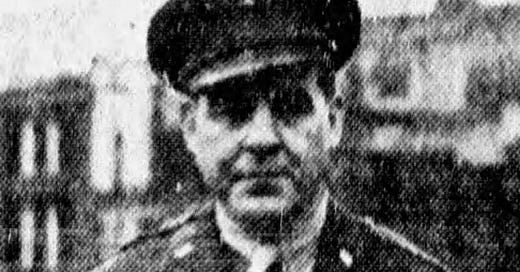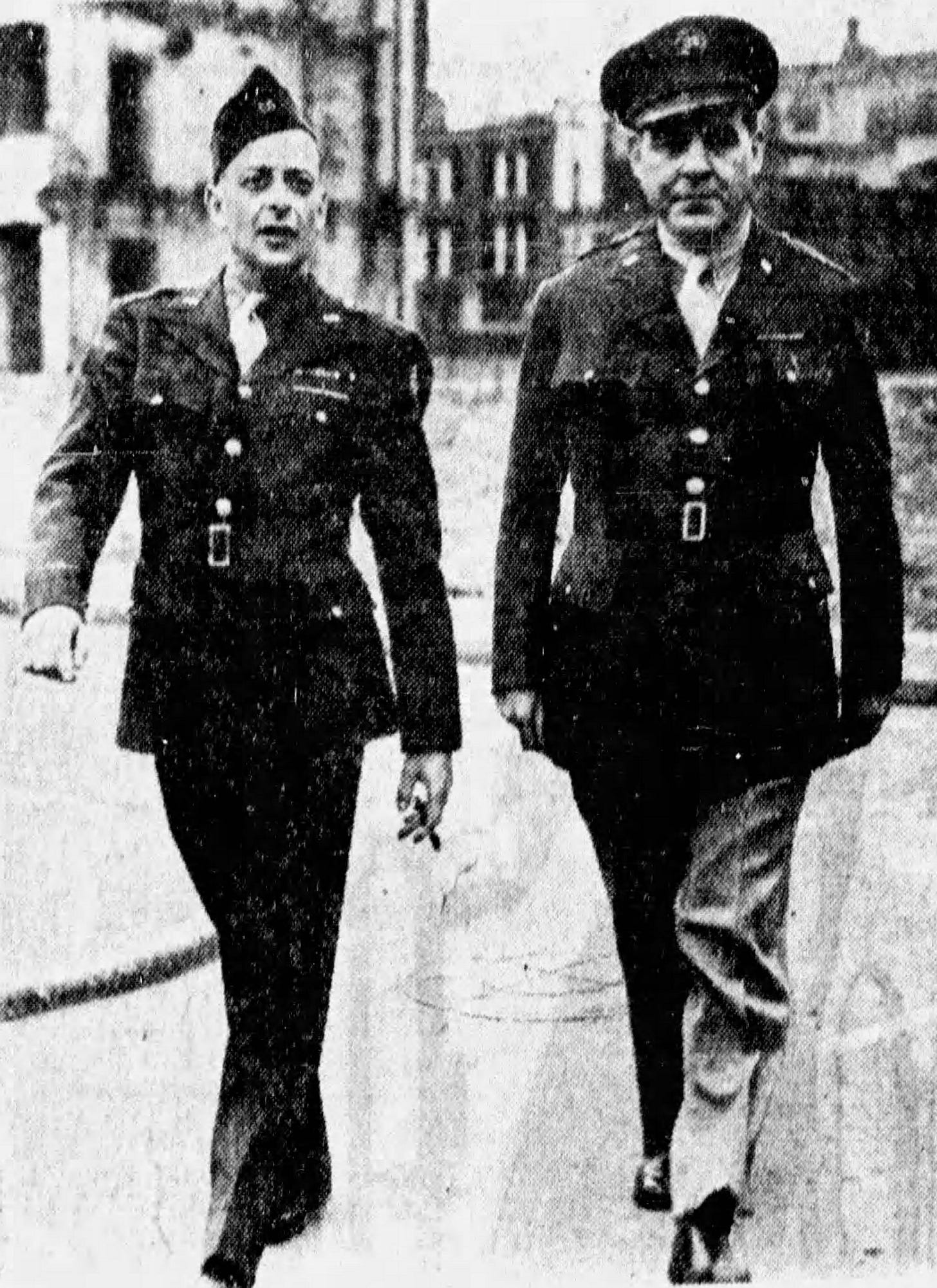Duke Shoop and an ambush in Brittany
On Aug. 2, 1944, Duke Shoop of the Kansas City Star was doing what war correspondents did — trying to find some local boys near the front.
Maj. Gen. Robert W. Grow of the 6th Armored Division had told him he might find some Missouri boys moving toward Saint-Malo, so Shoop and three other correspondents headed out in a jeep. They soon encountered an unexpected sight on the road: a convoy of 14 vehicles carrying U.S. Navy personnel.
The group of about 100 men led by Capt. Norman S. Ives, director of the port at Cherbourg, was en route to Saint-Malo to investigate possible port facilities in Brittany. The correspondents, including Donald MacKenzie of the New York Daily News, Philip Grune of London’s Evening Standard and Bud Kane of Stars and Stripes, decided to join them.
The party soon encountered a pair of Germans, who quickly put their hands up in surrender. As the prisoners were being questioned, gunfire suddenly erupted from multiple positions around the site. The Americans had rolled right into an ambush.
Sailors armed only with pistols and carbines suddenly became infantrymen, fighting it out in a skirmish that would last about three hours. Shoop and the other correspondents were in the midst of the action and did what they could to contribute, loading weapons and passing them to sailors trying to hold off the Germans.
According to all accounts, Ives led his men heroically. The 47-year-old Naval Academy graduate, a former submarine commander, repeatedly exposed himself to enemy fire by popping up out of a ditch on the side of the road to shoot.
Shoop described the scene in a story printed in the Aug. 8 Star, with Ives’ name not yet cleared for release:
The navy men were pulling the magazines out of their carbines to keep this gallant officer shooting. He was half in the ditch, leaning on a culvert behind a heap of crushed stone. Now that the Germans were on both sides of us, he had to watch on all sides and to keep the fields on his right under view. He had to expose himself in a manner that was almost suicidal.
He ordered your correspondent to get the line in the ditch moving to the rear while he covered them. Just as the line began to move to the rear the officer was shot down and fell back almost in my arms, dead.
Numerous other sailors were killed and wounded before elements of the 6th Armored Division arrived to rescue them, alerted by a Navy lieutenant who had volunteered to try and find help.
Those who remained finally boarded troop carriers “and in two minutes had left this nightmare road in the smiling and beautiful Brittany hills far behind us,” Shoop wrote, before concluding his account this way:
I prayed a million times during the afternoon and thought frequently what an odd way it was to celebrate my wife’s birthday anniversary. I sent her a cable yesterday (I hope she got it) wishing her many returns, but for myself I never want to return to another ditch like that.
Those hours in Brittany were the most perilous of Shoop’s relatively brief stint as a war correspondent, but from the sound of it that was fine by him.
Born April 26, 1904, in Illinois, the son of a small-town newspaperman, Russell T. Shoop picked up his nickname while attending journalism school at the University of Missouri. He joined the Star after graduation and rose quickly through the ranks, finding a niche as a political reporter.
A stint covering the statehouse in Jefferson City soon led to a job in the Star’s Washington bureau, where he would set up shop permanently in 1933 and remain for the rest of his career.
Shoop was known for his energetic persona and his ability to build relationships with pretty much anyone. President Franklin D. Roosevelt often asked Shoop to remain in the room after press conferences so he could get the newsman’s honest opinion on New Deal proposals.
“Presidents called him by his first name,” the Star would write in Shoop’s obituary.
He was particularly close to Dwight D. Eisenhower, who he first met when the future supreme commander and commander in chief was an Army captain stationed in Washington.
Shoop became the Star’s Washington bureau chief in 1947 and was named to the paper’s board of directors five years later. He also ascended to the presidency of the exclusive Gridiron Club in 1952.
Shoop was still hard at work covering the ins and outs of the D.C. political scene when he fell ill in late March 1957 with what would later be described as a liver ailment. He died on April 27, just 53 years old.
Though his time as a war correspondent was brief, it certainly was memorable.




